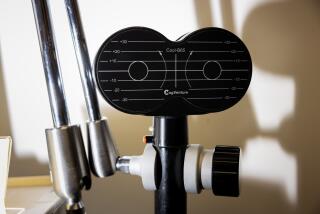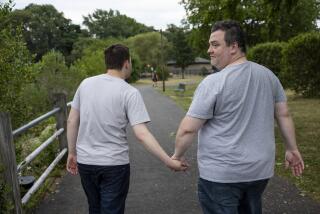Not all sold on pill for autism
- Share via
For the first time, the Food and Drug Administration has approved a drug to treat behaviors such as aggression, deliberate self-injury and severe temper tantrums associated with autism in children.
Risperdal, an anti-psychotic drug, was approved last month to treat symptoms in children and adolescents ages 5 to 16.
“This approval should benefit many autistic children as well as their parents and caregivers,” said Dr. Steven Galson, director of the FDA’s Center for Drug Evaluation and Research. He calls Risperdal “a welcome addition” with “an appropriate risk-benefit profile when tested in children.”
According to Peter Bell, president and chief executive of Cure Autism Now, a national organization committed to accelerating the pace of autism research, the approval is “an extremely positive sign.”
It signals, Bell said, that the pharmaceutical industry is looking at autism as a future market.
“Risperdal is not going to cure every child, and it’s not going be appropriate for all,” Bell said, “but when used appropriately it could make a significant difference in a child’s life.”
Others are sounding more cautious notes.
Some doctors warn that the drug should be used only after other treatments are tried that don’t involve medication. And the National Autism Assn., an advocacy group for families of autistic children, has serious concerns about Risperdal.
Wendy Fournier, the association’s president, said medications such as Risperdal mask symptoms. She likened its use to prescribing pills for a headache without addressing the cause of the headache.
The association is particularly concerned about the side effects of Risperdal, which can include drowsiness, fatigue, constipation and weight gain. There also are rare reactions, such as extreme weight gain, the seeping of a milk-like substance from nipples in both girls and boys and a neurological disorder causing involuntary movements, which according to the drug manufacturer can sometimes be permanent.
“The choices parents of autistic children have to make regarding medications are very difficult and very important. We don’t fault any parents for doing what they need to do for their kids. But this particular drug appears to have some very serious side effects. It’s a nightmare,” said Rita Shreffler, executive director of the association.
Risperdal, which is manufactured by Janssen, a subsidiary of Johnson & Johnson, has been around for more than a decade. It’s been used since 1993 to treat adults with schizophrenia and since 2003 to treat adults with bipolar disorder. The drug exceeded $3 billion in sales in 2005.
The FDA’s new approval for the use of Risperdal for autistic children comes after two eight-week, placebo-controlled trials in 156 patients ages 5 to 16, 90% of whom were ages 5 to 12.
Autism is a neurodevelopmental disorder that usually begins before age 3. It manifests itself in a variety of ways, which may include impaired social interaction; diminished communication skills; rigid, repetitive patterns of behavior and self-abuse.
The cause is not known and there is no known cure. According to the association, it affects 1 in 166 children. Others say that number is more like 1 in 250 and that it depends on how broadly one defines autism.
Risperdal will do nothing to eliminate the underlying condition, doctors say.
More to Read
Sign up for Essential California
The most important California stories and recommendations in your inbox every morning.
You may occasionally receive promotional content from the Los Angeles Times.













